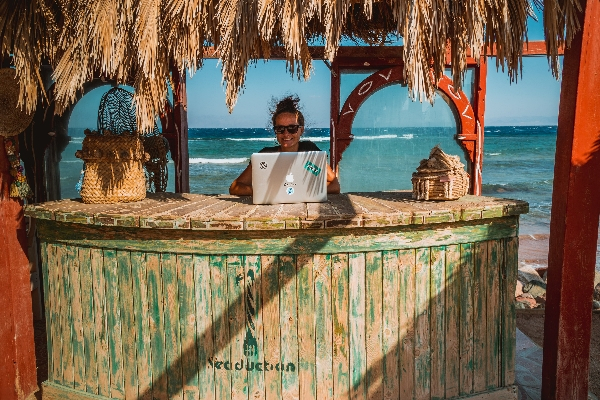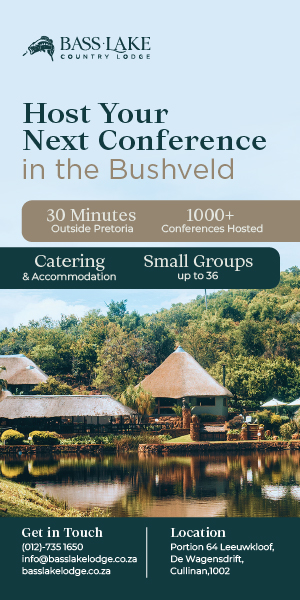Generation Z is known for how highly they value the freedom and flexibility that remote work offers. The opportunity that the pandemic created for more and more people to work remotely has seen this generation embrace the lifestyle of a ‘digital nomad’; professionals who are optimizing on this chance to travel and see the world – while simultaneously continuing to work and earn the means to do it.
These travellers are seeking adventure and experiences. They are also discerning and know what they want and are prepared to pay more to experience the activities, accommodation, and a remote working environment that supports their lifestyle.
This niche of bleisure traveller presents an appealing market for tourism businesses to target and attract. But to do this, you first need to understand them.
- They’re at home with (and expect) tech
Generation Z are those born between 1997 and 2012. This means they have never known a world before smart technology, and they expect it to be a part of their travel experience. Typically, they will do their own online travel research and make their own bookings so that they have full control of their experience and can tailor it to their exact liking.
This means that online tools such as search-and-compare websites for flights, accommodation and transport are a favourite among this generation, as it allows them to find options that fit their preferences and budget quickly and easily.
Find a way to encourage your clients to leave positive reviews on your social media accounts.
As a tourism business, if you want to reach Gen Zs you must be online and accessible. This means being on the right platforms. Social media channels like Snapchat, TikTok, Instagram, and YouTube are popular with this market segment, with TikTok’s short-form video content being the leading option.
Top tip: Find a way to encourage your clients to leave positive reviews on your social media accounts, as this kind of word-of-mouth referral is an effective way to build trust with Gen Zs.
- The accommodation is part of the experience
Gen Zs travel because they are seeking novel experiences. This includes accommodation, which has made smaller boutique hotels and short-stay accommodation popular options. Not only do they tend to have more eccentric selections when compared to large hotel brands, they also offer a more intimate environment for a home-away-from-home.
If you own a smaller establishment, this is a great target marketing opportunity. Make sure you keep your messaging authentic and with a relatable human element. Storytelling is great for this, as stories are an effective way to make your brand relatable and convey exactly what they can expect should they come and stay with you.
Don’t forget to highlight the ways in which your establishment can support a seamless remote working experience.
Importantly, don’t forget to highlight the ways in which your establishment can support a seamless remote working experience. This includes perks such as uncapped Wi-Fi, a large desk, unlimited coffee, and so on.

- Find ways to create extra value
Gen Z’s travel to seek new experiences, but while this can sound broad, often these experiences are for the “better things in life” that they may not easily have back at home.
Therefore Jazeign Kesari, National Procurement Manager at Teljoy, recommends you include small luxuries where you can. He says, “If you know a Gen Z has booked into your establishment, go the extra mile and bring in extra luxuries for the time they’re staying there. Rent a big-screen TV so they can view the promotional videos of your establishment and the activities you recommend, or to use for their online business meetings. Bring in a Nespresso machine for the duration of their stay. Or make a tablet available that they can use while staying with you.”
- Embrace sustainability
Generation Z individuals are also concerned about social justice and environmental issues, which means they often seek our tourism businesses that are making a genuine effort to look after both the people and the place where they are based.
Tshepo Matlou, Head of Marketing and Communications at Jurni, a local stay booking platform, says, “If you haven’t done so yet, implement smart eco-friendly initiatives at your establishment. There are so many brilliant green tourism ideas out there, like installing a water-bottle filling station at reception, using sustainable furnishings in your rooms, sourcing food from nearby suppliers, donating leftover food to charities, composting, and water-wise gardening.”
“There are so many brilliant green tourism ideas out there, like installing a water-bottle filling station at reception, using sustainable furnishings in your rooms, sourcing food from nearby suppliers, donating leftover food to charities, composting, and water-wise gardening.”
He adds, “As you improve your sustainability practices, get the word out. Share it on social media, using hashtags to appeal to eco-conscious consumers.”
Sandra Kneubuhler, District Director for Radisson Hotel Group in South Africa, agrees with Tshepo, adding that this generation “will be looking for an establishment that prioritises sustainable business practices. Groups such as ours believe in a thriving, sustainable, and responsible business that supports its people, communities and the planet with ethical business procedures, carbon reduction, sustainability practices and employability programs to build better futures. Over the past 10 years, the group has reduced its average energy and water footprint by 30%. This is the type of business practices that travellers are looking for when searching for a sustainable holiday.”

- Local is lekker
When Generation Zs’ are travelling, they want an authentic experience at each new destination. This means that they are keen to taste local dishes, experience the heritage and culture of the local people, and buy locally crafted goods and services.
If you want to attract these digital nomads, make an effort to work with local businesses, and share this philosophy across all of your communication. For example, if you have a restaurant, you could implement a policy to only source ingredients from within a certain radius, and make sure to include this policy on your menu. Or, if you have accommodation, you could partner with unique local tourism experiences to give your customers exciting options to add to their itinerary.
READ: Getting away for work and play (the bleisure tourism trend)




